![]() — Home — Business News
— Home — Business News
Weekly Business News from Myanmar
-
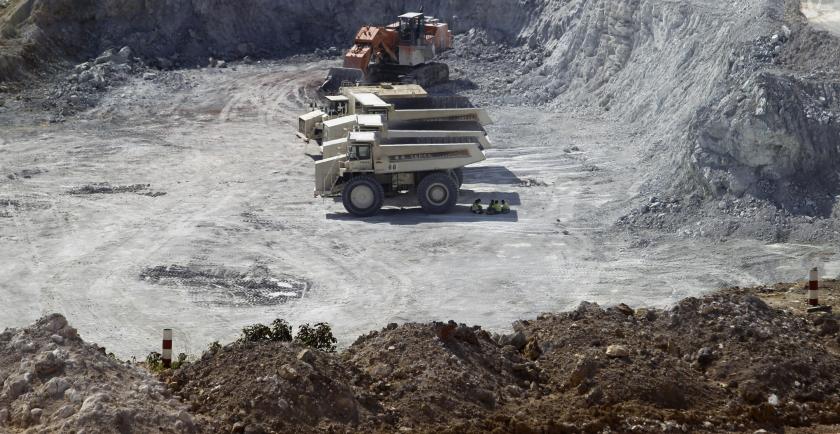
The government ceased issuing and renewing 8,000 jade and gemstone mining licenses since July 2016
8,000 jade and gem¬stone mining licens¬es have not been renewed since the govern¬ment ceased issuing and renewing them in July 2016. In their effort to reform the 1995 Gemstone Law, the NLD-led government has stopped issuing licens¬es siting adverse environ¬mental impacts, corrup¬tion, and armed conflict caused by the previously monopolistic industry. According to the Minis¬try of Natural Resources and Environmental Con¬servation, depriving the 8,000 license-seekers, large, medium, and small enterprises in Kachin, Sagaing, and Mandalay Regions, of permission to proceed has resulted in vacant mines from Mogok to Lone Khin. -
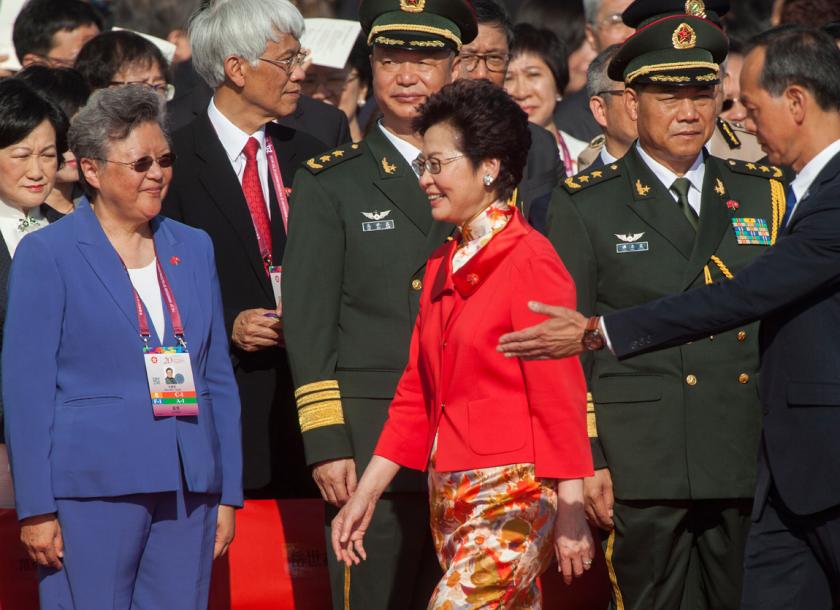
In order to promote Beijing’s Belt and Road Initiative, Hong Kong’s Chief Executive Carrie Lam visited Myanmar during 14-17 September 2017
HONG Kong’s Chief Executive Carrie Lam will visit Myanmar on September 14-17 in an effort to step up its game in ASEAN and is expected to promote Beijing’s Belt and Road Initiative. Mrs Lam will be speaking at the 14th World Chinese Entrepreneurs Convention (WCEC) on September 16, which is held by the Yangon-headquartered Myanmar Chinese Chamber of Commerce (MCCC). She will also meet with officials in Nay Pyi Taw and conduct visits to businesses in Yangon. ASEAN and the city announced the conclusion of negotiations on a free trade agreement (FTA) recently. The ASEAN-HK FTA is expected to be signed in November this year. Businesses in Myanmar told The Myanmar Times that they believe the FTA would facilitate inward investments into Myanmar and provide much-needed capital, particularly in infrastructure, manufacturing and property sectors. -
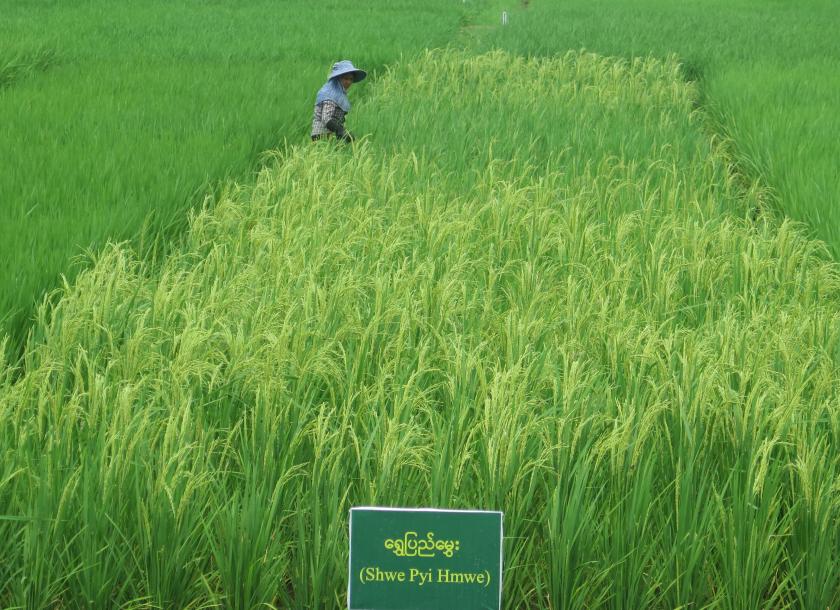
As the agriculture sector is the main driver of the country’s economy and food security, Myanmar must promote the cultivation of new plant species and seeds production
Myanmar must build businesses in the cultivation of new plant species and seed production, Union Minister for Ministry of Agriculture, Livestock and Irrigation Dr Aung Thu said. “As the agriculture sector is the main driver of the country’s economy and food security, I urge businesses to carry out sustainable seed production and work with the government to cultivate new plant species,” he said at the 10th East Asia Plant Variety Protection Forum held at the Department of Agriculture Research on September 12. Although Myanmar is an agriculture-intensive country, the production of pure-strain seed production - which supports the development of agricultural products – is done only by the State. The private sector has so far been absent on this front. “As such, there has so far been little investment in this sector," Dr Pa Pa Win, assistant research officer from Department of Agriculture Research, told The Myanmar Times. -
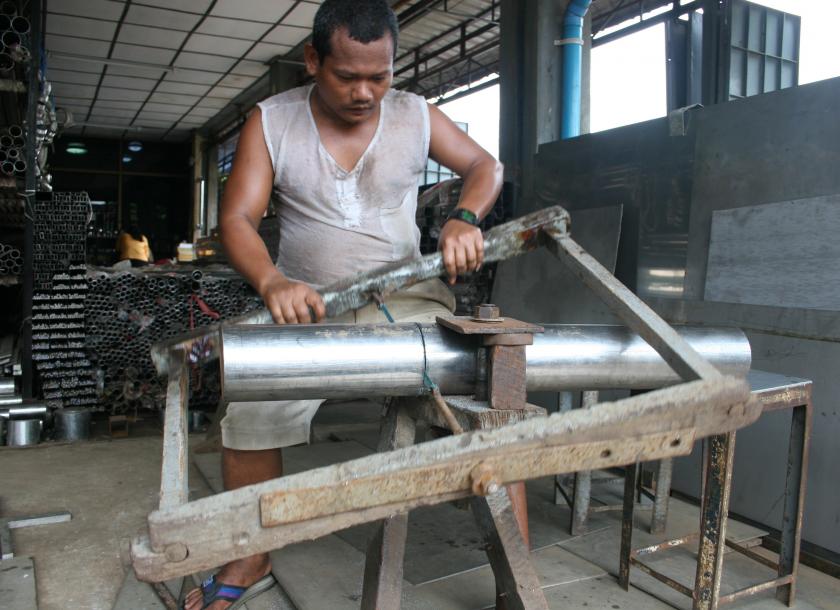
Myanmar needs to establish a regulatory road-map for the banking sector by giving the local banks more clarity on the progress and timing of upcoming regulations
Myanmar needs to establish a regulatory roadmap for the banking sector. This will give the local banks more clarity on the progress and timing of upcoming regulations, allowing them to gear up for further reform and growth. “Carrying out regulatory reform at an unmeasured pace can cause trouble,” said Azeem Azimuddin, CFO of Ayeyarwady Bank, during a panel at the 2017 Myanmar Global Investment Forum in Nay Pyi Taw today. In Myanmar, the speed at which new financial regulations were meted out by the Central Bank since 2013 had been exacerbated by the Global Financial Crisis. That resulted in mistakes that have inhibited growth. -
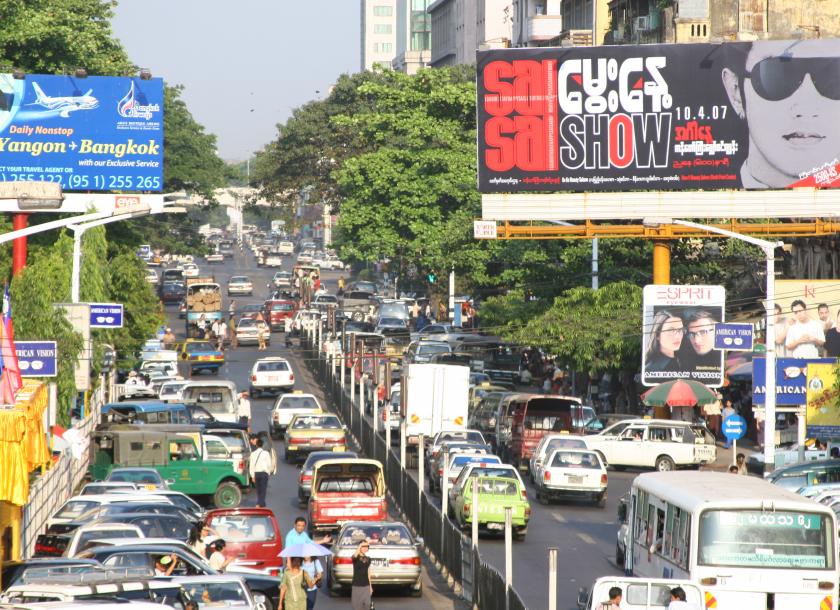
Businesses are more optimistic about investing in the Myanmar compared to last year
Prospects for the Myanmar economy are looking promising despite the unrest in northern Rakhine, officials from the public and private sector said today. Inflation pressures are expected to ease and private and public investments in infrastructure services and non-commodity sectors such as light manufacturing and hospitality are forecast to grow, said U Maung Maung Win, Deputy Minister of Planning and Finance, during his keynote speech during the 2017 Myanmar Global Myanmar Investment Forum holding in Nay Pyi Taw. U Maung Maung Win said during a sideline interview with The Myanmar Times that the Ministry of National Planning and Finance has set an economic growth rate target of 7 percent for current fiscal year. -
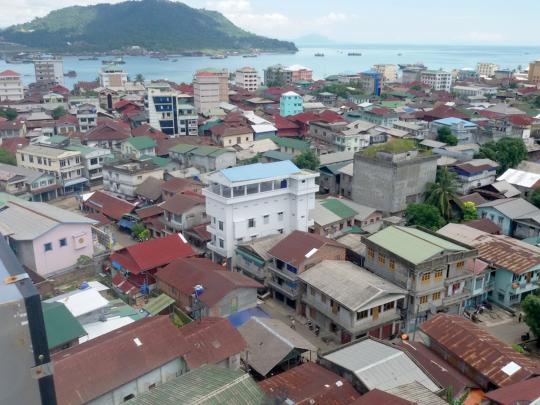
Tanintharyi Region government drafted a mater development plan with help from Japan
The Tanintharyi Region government has drafted a master development plan with the help of Japan, said Tanintharyi Region Chief Minister Dr Le Le Maw on September 8. The master plan will prioritize the marine, education and mining sectors. “I have requested that Japanese people draw the master plan twice. Now they are drafting the master plan for the development of Tanintharyi Region. The master plan mainly focuses on the Myeik region. The region has invaluable fish resources and mining. I don’t want to hear the news about instability in the Myeik region. It is not an easy task. I don’t want the cancellation of the project due to terrorism. So we are responsible for it. I would like to urge all of you to make cooperation carefully.” -
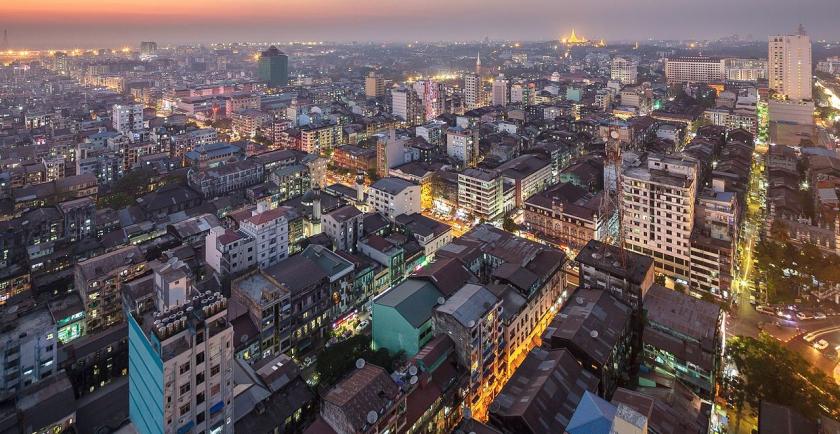
Myanmar expects a combination of market reforms and rebound in foreign investment to underpin stronger economic growth in 2018
A combination of market reform and a rebound in for¬eign investment is expect¬ed to underpin stronger growth in Myanmar’s economy this year and into 2018. The process of opening up the economy to pri¬vate sector and overseas involvement took a key step forward in mid-June, with the Ministry of Com¬merce announcing fur¬ther liberalisation of trade and import regulations. Under the new rules issued in mid-June, for¬eign companies are now permitted to trade and import fertilisers, seeds, pesticides, hospital equip¬ment and construction materials, in accordance with the Myanmar Har¬monised System com¬modity code. Trade of these products was for¬merly limited to domestic firms, or those working in partnership with overseas companies. -
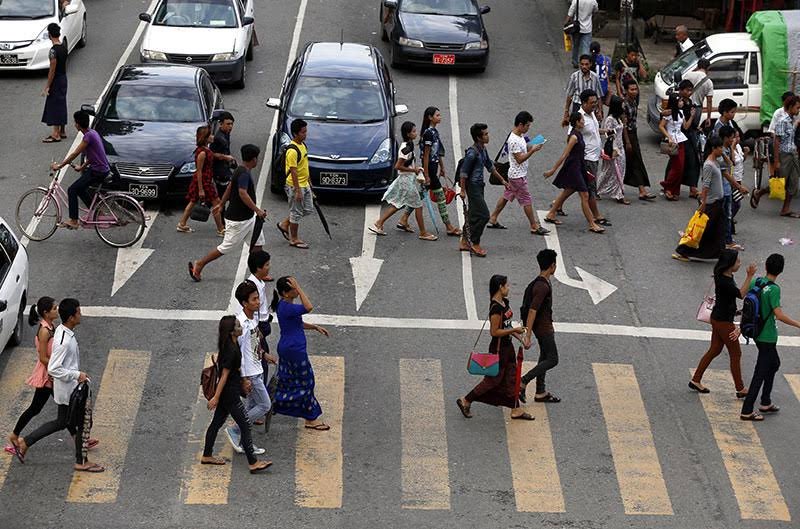
Myanmar can become a middle income country by 2030, due to its potential to attract a booming foreign direct investment
Myanmar can become a middle-income country by 2030 and triple its per capita income, says Indian economist Prabir De. In a book "Myanmar's Integration with the World” co-authored with Ajitava Raychaudhuri, that was released during the first India-Myanmar dialogue, De says Myanmar can become one of the fastest growing economies and grow at 7-8 percent per annum. "With Myanmar enjoying preferential quotas due to its Least Developed Country status and with the sanctions gone, the country has the chance to attract a booming foreign direct investment," De said in his chapter in the book. The book was launched by Indian Ambassdor Vikram Misri and Parami Energy CEO Ken Tun. De listed the disadvantages faced by Myanmar as it seeks foreign direct investments - small population size, missing institutions, narrow trade basket, inadequate trade capacity, lack of skilled human resources and insufficient infrastructure. -
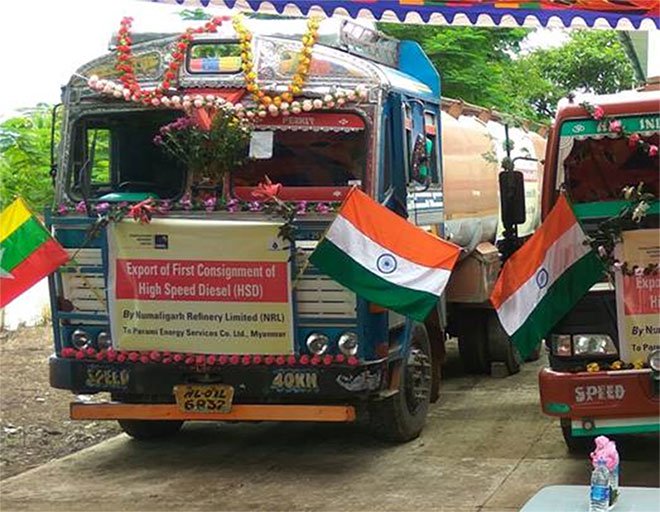
To demonstrate the growing hydrocarbon engagement between Myanmar and India, the first consignment of 30 MT of high speed diesel was sent from India
Symbolizing the growing hydrocarbon engagement between India and Myanmar, the first consignment of 30 MT of High Speed Diesel was sent today from India to Myanmar by land route, according to a statement. Numaligarh Refinery Ltd. (NRL), which has been supplying HSD to Bangladesh, dispatched the first diesel consignment through NH 37 across the Moreh Custom Check Point on the Indian side and Tamu Custom Check Point on the Myanmar side. Supply of diesel to Myanmar is another step in realizing the vision of Prime Minister Shri Narendra Modi to enhance hydrocarbon synergy with neighboring countries as well as promoting India’s Act East Policy. NRL has entered into an agreement with Parami Energy Group of Companies for the supply of diesel and collaboration in the retail petroleum sector of Myanmar. NRL refinery, situated at 420 km from the India-Myanmar border, is ideally suited to supply diesel to Northern Myanmar where connectivity is a challenge, particularly in the rainy season. -
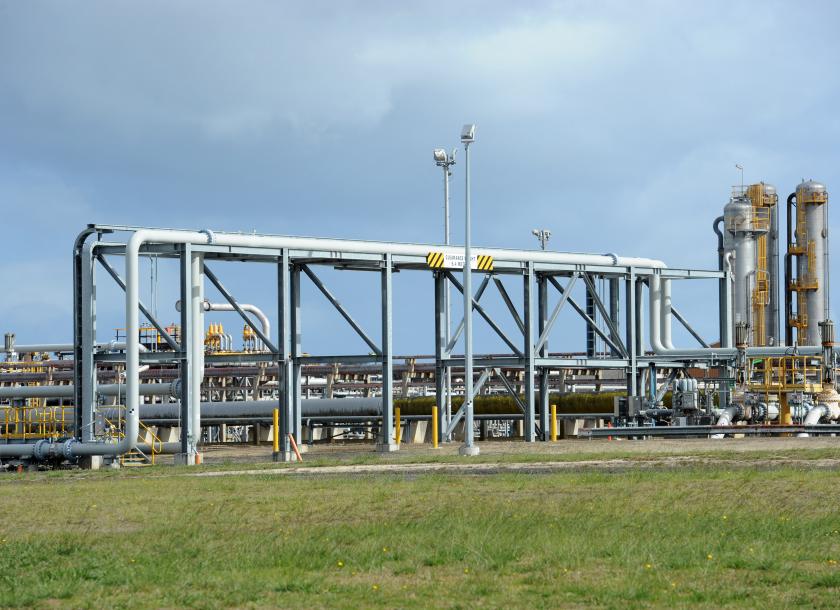
China- Myanmar combined cycle gas power plant will be completed as scheduled in the first quarter of 2018
A combined-cycle gas power plant in Thaketa Township will begin operations as scheduled in the first quarter of 2018, according to a statement released by General Electric (GE) earlier this month. The plant will be powered by GE's renowned F-class gas turbines, producing 106 megawatts of energy when complete in 2018. A joint venture between China and Myanmar, the plant is currently being constructed by China’s SEPCOIII Electric Power Construction Corp. SEPCOIII will use GE’s 6F.03 gas turbines for the combined-cycle system. A combined-cycle power plant uses both a gas and a steam turbine together to produce up to 50 percent more electricity from the same fuel than a traditional simple-cycle plant. The waste heat from the gas turbine is routed to the nearby steam turbine, which generates extra power.
Business News
Copyright © 2014 Business Information Center All Rights Reserved.







